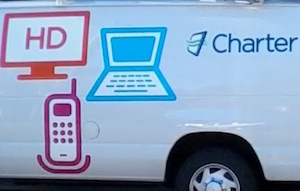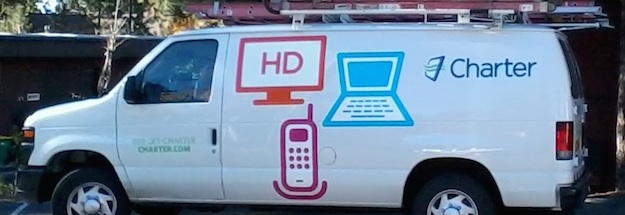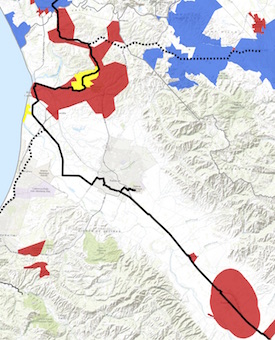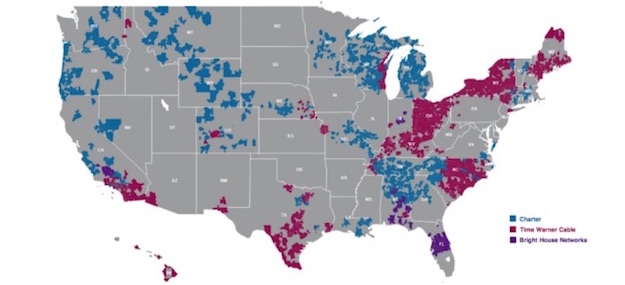
Broadband counts.
Charter Communication’s purchase of Time Warner and Bright House cable systems in California should be approved if the company sticks to promises that it has made and to agreements it has reached with parties that previously opposed the deal. That’s the draft decision offered by Karl Bemesderfer, an administrative law judge with the California Public Utilities Commission.
Bemesderfer’s proposed decision will go to a vote of the full commission next month. In it, he says that the deal does have some negatives – greater market concentration, for example – but Charter’s promised upgrades and changes to the way it does business makes up for it…
Weighing Charter’s commitments to increased Internet speeds, increased numbers of wireless access points, less onerous contracts, more effective competition in the enterprise space, unbundling of services, equal treatment of content providers and greater diversity in hiring, contracting and programming, all of which will be made explicit conditions of approval of the Transaction, against the increase in concentration of the market for broadband Internet access without the threat of discrimination against competing content creators, we conclude that the benefits of the Transaction outweigh its drawbacks and the Transaction satisfies [the section of the public utilities code that says that such deals must “be beneficial on an overall basis to state and local economies, and to the communities in areas served by the utility”].
…
More
![By J.smith (Own work) [CC BY-SA 3.0 (https://creativecommons.org/licenses/by-sa/3.0)], via Wikimedia Commons](https://www.tellusventure.com/images/2016/5/sacramento_skyline.jpg)

![By Antoglonet (Own work) [CC BY-SA 3.0 (https://creativecommons.org/licenses/by-sa/3.0)], via Wikimedia Commons](https://www.tellusventure.com/images/2016/5/holy_hand_grenade.jpg)

![By User on en.wikipedia [Public domain], via Wikimedia Commons](https://www.tellusventure.com/images/2016/5/baja_hurricane.jpg)




![By Daniel Barcelona (Own work) [CC BY 3.0 (https://creativecommons.org/licenses/by/3.0)], via Wikimedia Commons](https://www.tellusventure.com/images/2016/3/twc_arena.jpg)
